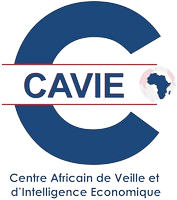[ACCI-CAVIE] The African Centre for Competitive Intelligence plays a discreet yet crucial role in supporting public and private African negotiators in several key areas for the continent’s competitiveness.
Capacity building
The ACCI provides training to African negotiators on influence techniques, counter-influence, strategic intelligence, and international negotiation, taking into account the specificities of the international context. As part of the Joint Capacity Building Program for Public and Private Decision-Makers, created in partnership with Knowdys Consulting Group and BVMW Afrika, the ACCI develops high-level training modules. Objectives: to meet the specific needs of public negotiators (in trade agreements and investment projects) and private actors (for commercial contracts and partnership agreements).
Production of Intelligence
To address the specific concerns of African negotiators, the ACCI collects, processes, and analyzes information on local and international markets, foreign competitors, standards, lobbying techniques, and global economic trends. Through this system, the Centre produces intelligence reports and in-depth sectoral reports on key negotiation topics (trade, agriculture, energy, industry, etc.) for the benefit of African negotiators in their national and international activities. An alert system also informs negotiators who request it about risks and opportunities related to ongoing negotiations.
Support and consulting
The ACCI provides technical assistance to African negotiators in the preparation of negotiations, helping them identify key points, define their strategy, and formulate their positions. If necessary, the Centre mobilizes sectoral experts to provide negotiators with professional expertise and technical support in specific areas in response to their requests. Finally, as part of its continuous quality improvement approach, the ACCI analyzes the outcome of negotiations and draws lessons for future occasions.
4. Promoting dialogue
The ACCI regularly organizes international conferences and workshops to bring together African public and private actors responsible for negotiation issues, among others, to share best practices. The network of qualified experts encourages dialogue and the sharing of experiences and information. For example, within the framework of its national workshops “Understanding and Benefiting from the AfCFTA,” the ACCI presents its findings and analysis on the stakes of the African Continental Free Trade Area. These workshops provide African negotiators with a better understanding of the commercial, economic, and legal implications resulting from the AfCFTA.
Conclusion
Dr. Guy Gweth, President of ACCI, emphasizes that the Centre is a priceless partner for African negotiators, offering a wide range of services and tools to strengthen their capacities, provide support in negotiations, and promote dialogue and collaboration among them.
The editorial team


